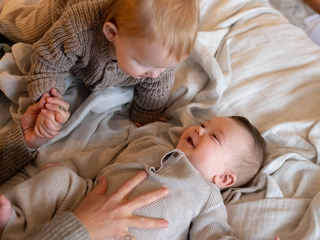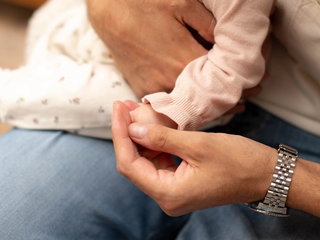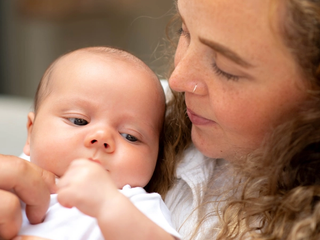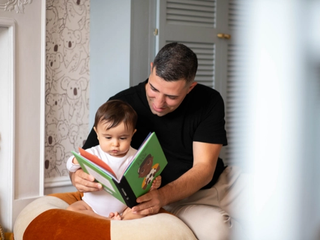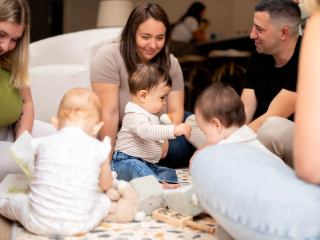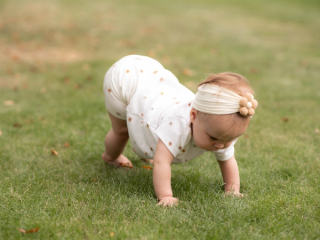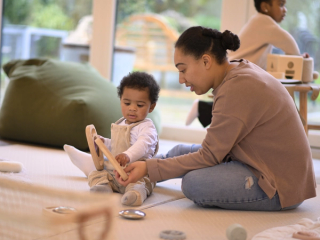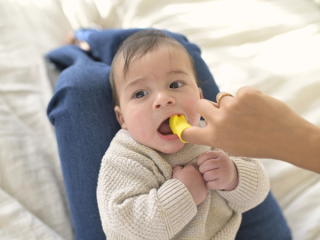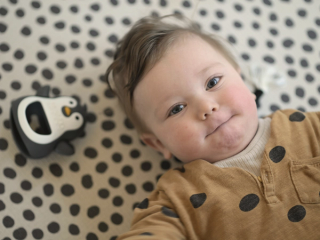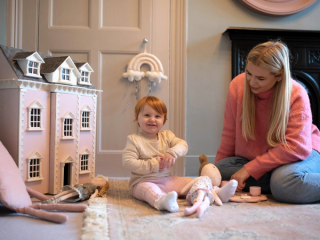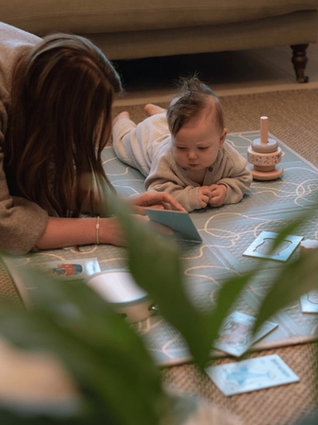
- Home
- Advice Hub
- Baby
- Bonding & Development
- Games To Support Speech And Language Development
Interactive games and activities to support your baby’s speech and language development
Did you know that play has a significant role in fostering your baby's speech and language skills? In this guide, we'll explore why play is essential and provide practical play ideas to encourage language development.
As parents, we are constantly seeking ways to support our little ones as they grow and develop. One crucial aspect of early childhood development is speech and language acquisition. Did you know that play has a significant role in fostering your baby's speech and language skills? In this guide, we'll explore why play is essential and provide practical play ideas to encourage language development.
Why is play important for speech and language development?
Play is more than just a fun activity for babies—it's their primary mode of exploring and learning about the world around them. Through play, babies engage their senses, build motor skills, and develop cognitive abilities. But perhaps most importantly, play provides ample opportunities for language exposure and practice.
Language stimulation
When babies engage in play, they are often exposed to language from others. Whether it's listening to you narrate their actions during play or hearing their siblings interact, babies are constantly absorbing language input. This exposure is crucial for building vocabulary and understanding language structures.
Social interaction
Many forms of play involve social interaction, whether it's playing peek-a-boo with you or babbling back and forth with a cuddly toy or puppet. These interactions not only strengthen the bond between you and your baby but also provide opportunities for language development. Babies learn the nuances of communication, such as turn-taking and responding to cues, through these playful interactions.
Imaginative play
As babies grow older, they begin to engage in more imaginative play, where they pretend to be different characters or act out familiar scenarios. This type of play encourages the use of language in new and creative ways. Whether they're pretending to cook in a toy kitchen or caring for a doll, babies practice using words to express their thoughts and ideas.
Play ideas to encourage speech and language development
Now that we understand why play is crucial for speech and language development, let's explore some practical play ideas that you can use with your baby. Here are five top tips for playing together.
- Create opportunities to play with a variety of ‘toys’ – Babies benefit from a variety of play experiences. Exploratory play helps them learn about the world around them, while pretend play (e.g. playing with dolls and soft toys) helps them develop their imagination. Having access to a range of toys can benefit children’s learning but this doesn’t mean you have to buy lots of toys. Get creative about ways you and your baby can try out new toys. Visit new play groups, swap toys with other parents, or seek out local Toy Libraries.
- Play without toys! – Not all play requires ‘toys’. Babies love exploring everyday household items. Gather some in a bag or hide them under a cushion and name them for your baby as they pull them out or ‘find’ them. This is a great way to support vocabulary development. Babies also love listening to environmental sounds, so make sure the TV is off and talk about what you can hear.
- Repetition is key – Repetition and routines support babies to engage and learn new vocabulary. Sing nursery rhymes, share books, and play People Games (e.g. peek-a-boo) together.- These are all fantastic ways to support your child’s language development. Support your child to participate in these activities by using plenty of gestures, allowing them to hold the books and turn the pages and using lots of pauses to encourage them to take a turn using their non-verbal communication (e.g. eye contact, facial expressions and the way they move their body).
- Join in and play – Make a connection with your child through play so they know how important you think they are. Observe how your child is playing with the toys and imitate this to play in a similar way. Talk to your child about what they are looking at and interested in.
- Have fun! – Babies learn the most when they are having fun, so observe what they are enjoying and do more of that.
Incorporating play into your daily routine is not only enjoyable for you and your baby but also essential for their speech and language development. By singing nursery rhymes, talking to your child, reading and having fun together you provide valuable opportunities for your baby to practice their language skills in a natural and supportive environment. Every interaction is an opportunity for learning and growth, so make the most of these precious moments with your little one!
Advice & tips

Want to read more? Join the HiPP BabyClub for full access to this article.
As a BabyClub member, you'll get access to a range of exclusive benefits, including:
Monthly competitions
Discounts from our Partners
Expert advice tailored to your little one's age
Weaning recipes
HiPP shop discounts*
*10% off HiPP's online shop does not apply to our First Infant, Anti-Reflux or Comfort Formula Milk.
Important notice: Breastfeeding is best. Follow on milk should only be used as part of a mixed diet from 6 months. Talk to a healthcare professional.




